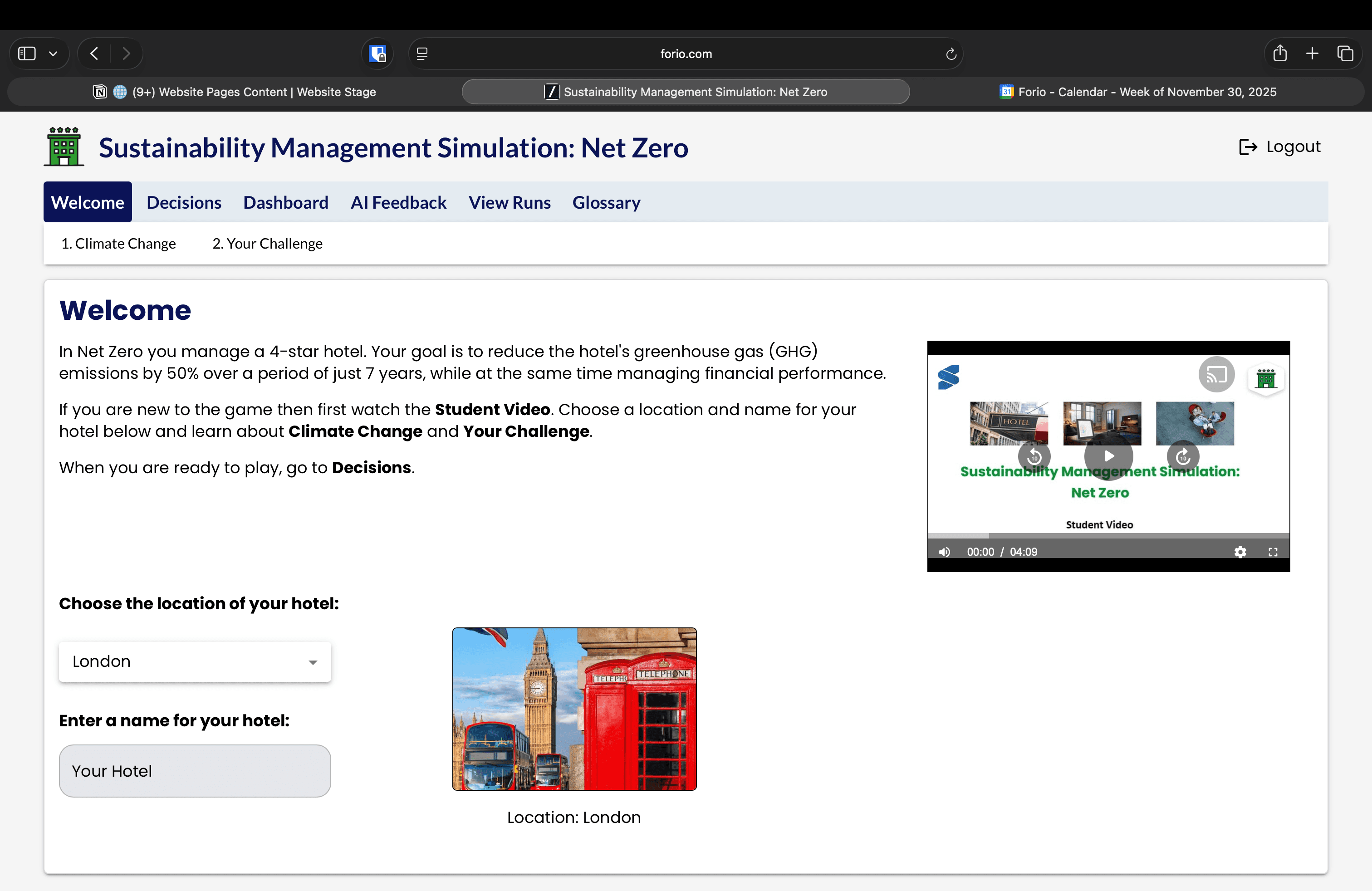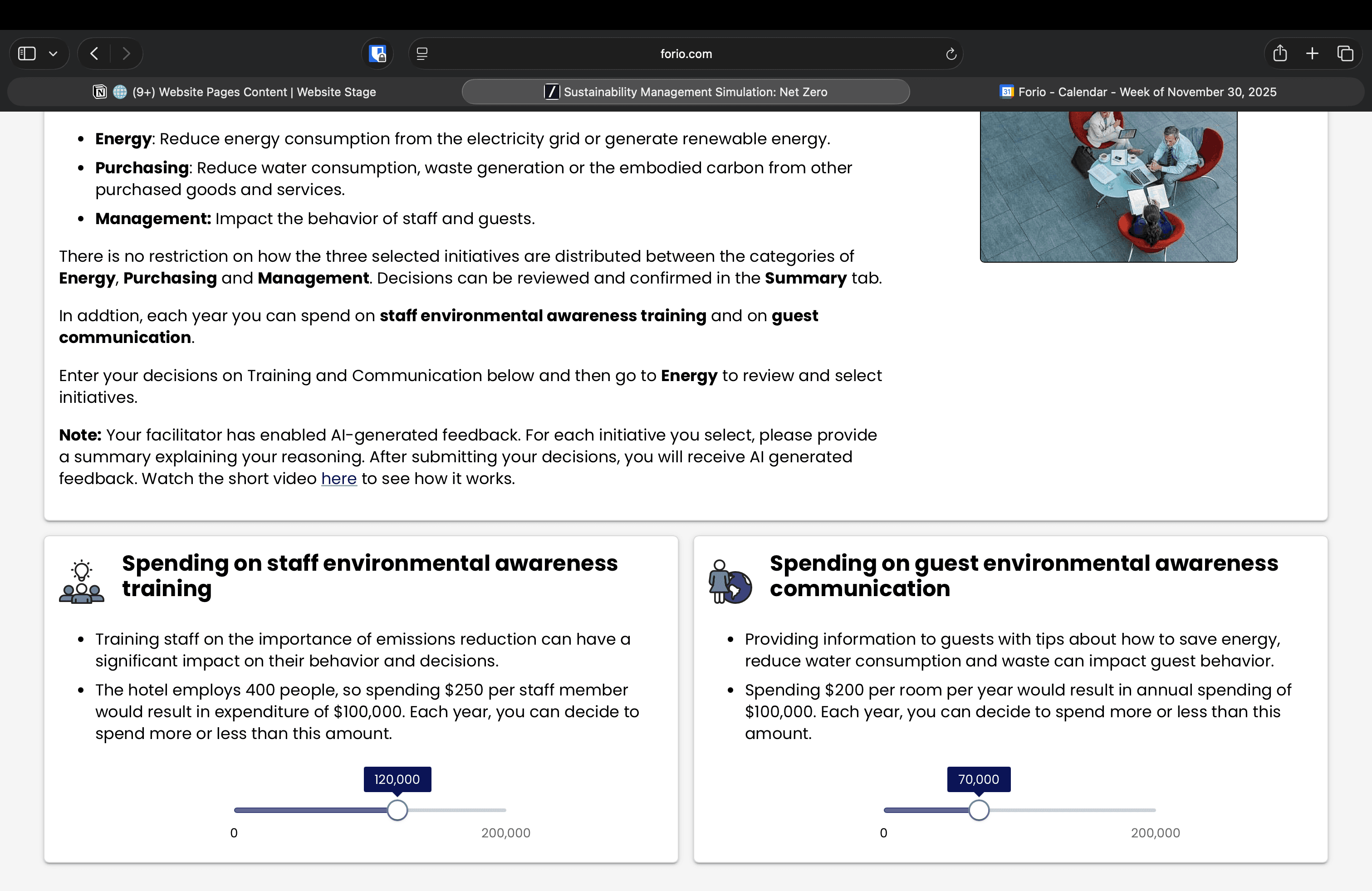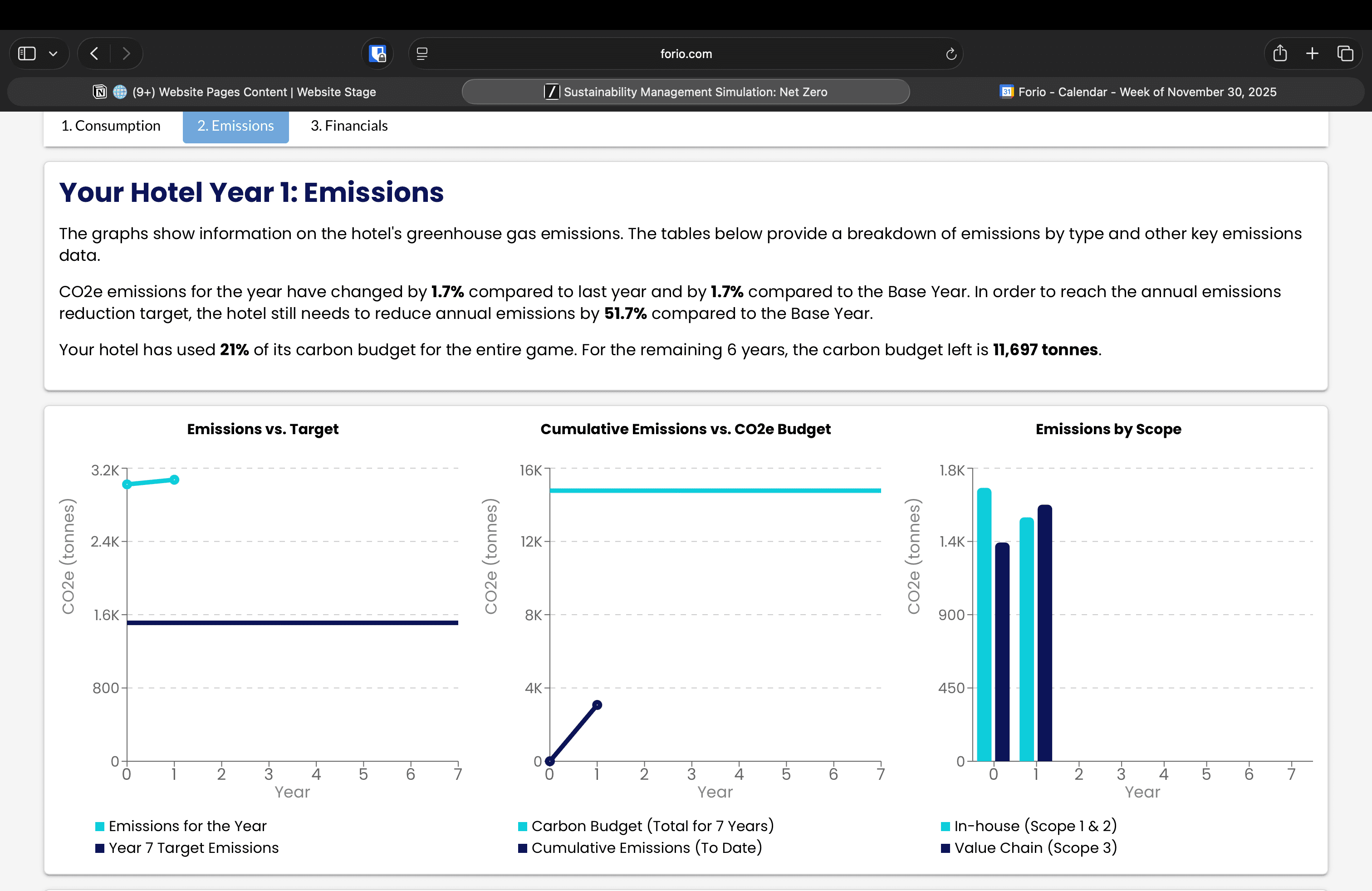Net Zero
Sustainability Management Simulation
Simulation Overview
The Net Zero Sustainability Management Simulation immerses learners in the challenge of steering a global company through the transition to net zero emissions. Over multiple decision cycles, learners evaluate annual reports, stakeholder news, and shifting market conditions to choose initiatives that reduce emissions while managing financial outcomes and operational realities.
Grounded in internationally recognized climate frameworks—such as the Science Based Targets initiative and the emissions scopes structure—the simulation highlights the complexity of reducing Scope 1, 2, and 3 emissions across diverse business functions. Through hands-on decision-making, learners experience how carbon budgets, long-term strategic planning, and organizational alignment influence progress toward net zero.
The simulation emphasizes systems thinking, scenario-based decision-making, and responsible leadership—demonstrating how organizations must balance ambition with feasibility, and innovation with operational discipline, to achieve long-term sustainability goals.
Players
Multiplayer
Single Player
Languages
English, Spanish
Simulation Time
Total Time: 1.5-1.75 hours
Intro 10-15 minutes, Gameplay 1 hour, Debrief 20-30 minutes
Accessibility
WCAG 2.1 Compliance
Price
$165 per person
Simulation Categories
The Story



Your company has publicly committed to reaching net zero by 2050—and the world is watching. Each year brings new pressures: investors demanding measurable progress, customers expecting transparent action, regulators tightening requirements, and suppliers struggling to keep pace. Meanwhile, your carbon budget is shrinking, and the cost of inaction grows.
As the sustainability leader, you must chart a course through uncertainty. Which initiatives will you prioritize? How will you allocate resources? And how will you guide the organization through the tradeoffs required to drive meaningful emissions reductions without compromising business performance?
In this immersive simulation, learners experience the real-world complexity of leading a company toward net zero—where every choice influences risk, reputation, profitability, and long-term resilience.
Core Competencies
Environmental Awareness
Risk Awareness and Management
Systems Thinking
Measurement and Analysis
Strategic Decision Making
Stakeholder Management
Analysis and Business Acumen
Ethical Leadership and Responsibility
Innovative Strategy
Operational Efficiency
Financial Decision Making
Learning Objectives
Resources to Power Your Simulation
Each simulation comes with a Facilitation Guide along with 1:1 facilitator training and free trials.
Available with this simulation
Facilitation Guide
Debrief Slides
Intro Slides
Facilitator Video
Student Video
Free Trial & Demo
Check Out Similar Forio Sims
Sustainability
Net Positive Hospitality

Lead a hotel through seven years of strategic decisions to advance along the Pathway to Net Positive Hospitality. Balance impact across People, Planet, Place, and Prosperity while navigating crises, stakeholder expectations, and evolving sustainability initiatives.
Check It Out
Sustainability
Fashion Forward

In this simulation, participants are challenged to manage the design, manufacturing, and retail activities of a fast fashion company to improve the company’s financial and sustainability metrics.
Check It Out
Strategy
Coffee Shop Inc.

Learners manage the strategy and operations of a coffee shop, progressing from a single store to a global chain, making decisions on strategy, operations, marketing, and HR.
Check It Out
Entrepreneurship
The Babson College Mindset Game

The Babson College Mindset Game covers innovation, iterative processes, and value creation and embracing risk and failure. It's designed to foster an entrepreneurial mindset, sharply contrasting it from the traditional managerial mindset.
Check It Out
Operations Management
Benihana

Learners manage operations at Benihana, experimenting with batching, bar design, and service timing to optimize throughput, capacity utilization, and profitability in a dynamic restaurant environment.
Check It Out
Entrepreneurship
The Balanced Scorecard

In this multi-player asynchronous simulation from Harvard, learners can experience the pros and cons of using a balanced scorecard to implement strategic ideas and monitor the company’s performance.
Check It Out
Innovation
Back Bay Battery

Play the role of the CEO of Back Bay Battery, managing a portfolio of R&D investments. This online simulation is based on Clayton Christensen's "The Innovator’s Dilemma."
Check It Out
Leadership and Teamwork
Breaking News

In the Innovation Simulation, you play the role of a Product Manager who is tasked with finding a strategy to help a struggling newspaper company. Working around time limits and budget, participants must design innovative campaigns, focus groups, and R&D projects.
Check It Out
